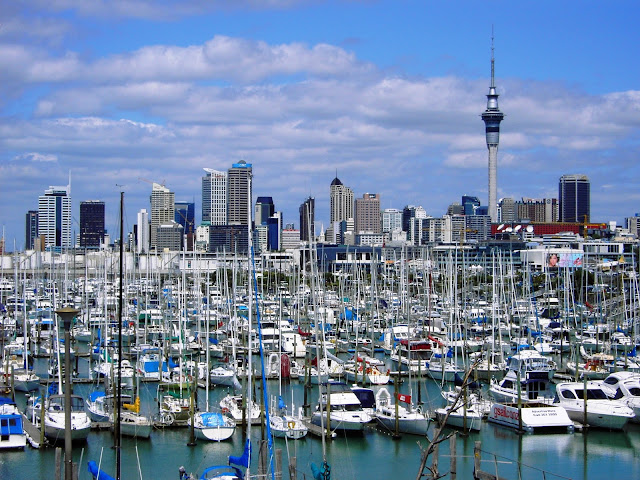New Zealand has an international
reputation as a provider of quality education. It offers a safe learning
environment which provides excellent study opportunities and support services
for international students.
New Zealand qualifications are of a
high quality and have a reputation around the world for being practical, modern
and desired. All courses, programs, and qualifications offered by New Zealand
institutions are quality assured by the New Zealand government. Major employers
around the world recognize New Zealand qualifications and employ New Zealand
graduates.
Study levels in New Zealand
University education is divided into
three levels: Lower education studies (bachelor's degree), higher education
studies (master's degree) and a Ph.D. degree that is taken after a master's
degree.
It usually takes three years to
complete a bachelor's degree and 1.5 - 2 years more to complete a master's
degree. Once you have completed a bachelor's degree, you have the chance to
take a master's degree or an honors-year. In New Zealand, most students
start to work after studying a bachelor's degree, so if you take a bachelor's
degree are there good chances for getting a good job, if you want to stay in
New Zealand. You can also go to New Zealand for one or two semesters and study
some subjects as a part of your education at home, thus having your credit
transferred to your home university after studying in New Zealand.
Quality learning experience
New Zealand university system is
research-based as it is based on the British education model. This means there
are a lot of similarities between the two systems, such as the teaching
methods. The fact India also follows British education system makes it easier
for Indian students to adjust. The academic staff is expected to be researchers
as well as teachers. This ensures a high-quality learning experience. New
Zealand Vice-Chancellors' Committee, the universities' representative body, has
legal responsibility for course approval and moderation.
The safe and welcoming environment
International students are welcomed
warmly in New Zealand society for the cultural diversity they bring and their
contribution to the economy. New Zealander citizens are well traveled and are
interested in people from other cultures, so international students feel more
welcome. Campuses have students from all across the globe studying together.
Students come from Europe, South East Asia, UK, Asia, among many others.
Easy entry requirements
Unlike many other countries, New
Zealand universities do not have a lot of competition to get admitted for a
university degree. That is because the New Zealand government has invested
heavily in higher education over the years. Because of that, New Zealand
universities have more capacity than the number of students. Students with
moderate grades can get entry to most Bachelor degree programs easily. Hence
the entry requirements are minimal compared to most of the top universities in
the world.
Cost of living and work
opportunities
New Zealand offers a very affordable
tuition fee compared with many other countries around the world. It has
the comparatively low cost of living, food easily available at reasonable
prices and a wide variety of student accommodation options. Public transport is
also moderately priced, offering easy access to rivers, lakes, forests, and
beaches for the recreational opportunities they provide.
All students on a student visa can work
up to 20 hours per week during the semester and full time during vacations i.e.
40 hours. Many New Zealand institutions offer a student employment service
called ‘Student Job Search’ to help you finding work.
Work permit
If you complete your course
successfully, you automatically get a 12 months ‘Work Permit’ under the student
visa policy. In most instances, this permit will be done at your institution
itself. This allows you to work full time in any job of your choice. However,
if you want to get a New Zealand Permanent Residency (PR), then you have to
find a job that is relevant to the course that you have completed. Eg: If you
have completed a course in IT, then you have to find a job as a programmer,
analyst, etc. This will immediately give you a 2 years work permit with all
rights like free medical, etc. Upon receiving this 2 years work permit then you
can apply for PR and normally will get it within 5-6 months.
